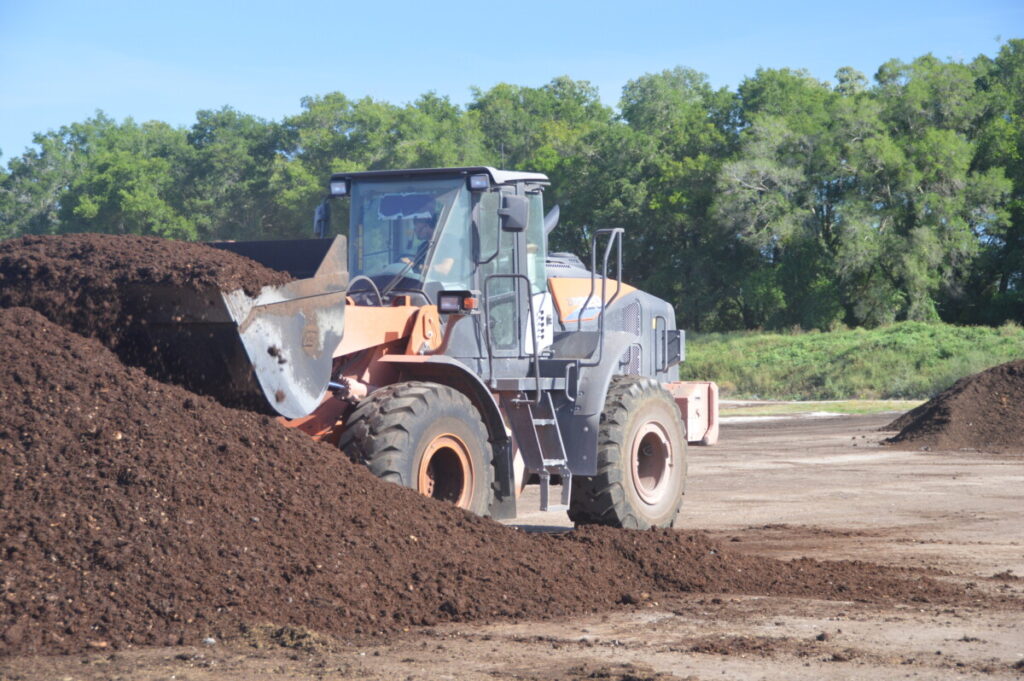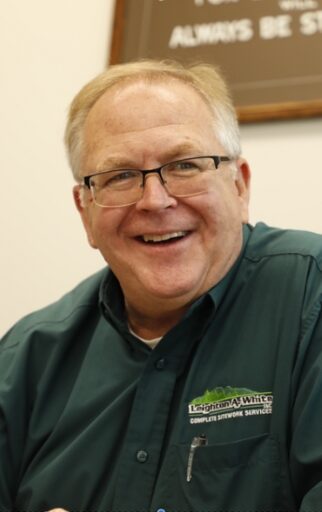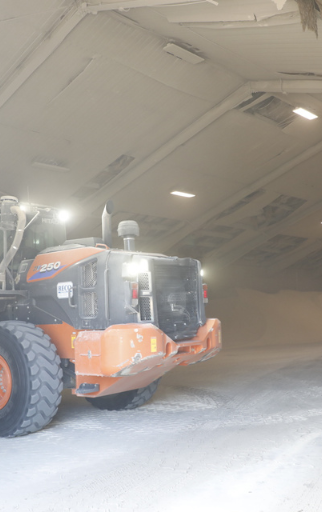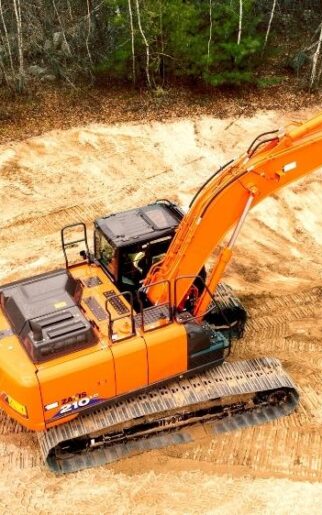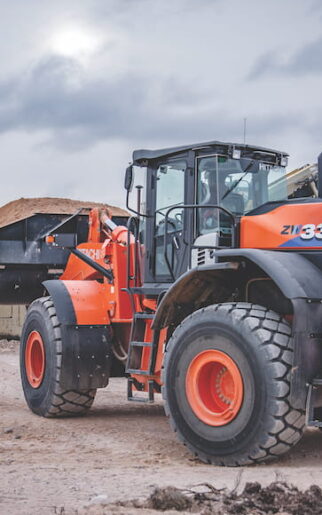Black Gold Compost Company relies on Hitachi wheel loaders to keep their compost business moving
If you’ve been in a big box or retail home center store in the past few decades you’ve seen the distinctive black and yellow bags of Black Kow Compost in the garden sections.
Behind those products is an Oxford, Florida-based company, Black Gold Compost, with a long relationship to the wheel loaders of Hitachi and its predecessor, Kawasaki.
Black Gold Compost was founded in 1970. The Lange family bought the company in 1985 and at one point all the brothers and sisters had worked in the business. Today, Michael Lange is the president and one of his sisters still works in the office. The company has gone from producing 50,000 bags of compost in its first year to 6 million last year, and it now offers a diversified range of products such as Black Kow Topsoil, Black Velvet Planting Soil, Mushroom Compost, and the basic Black Kow Mature Manure compost.
And as with so many other home and garden products throughout the COVID-19 pandemic, sales of Black Gold Compost products have boomed. “We’re probably up by 30 or 40%,” Lange says.
 Equipment intensive
Equipment intensive
The Black Gold’s site fills some 120 acres total, with up to eight loaders traversing 80 acres of that. The loaders stay busy, each averaging about 2,000 to 2,500 hours of work a year.
Almost every day, mountains of dry cow manure are hauled in from dairy farms in the region and dumped onto the back of the site. As needed, the manure is loaded into trucks, then laid out in dozens of long windrows. After being mixed by stirring machines, each of the windrows are moved forward by the loaders in a slow march towards the front of the site.
“We compost year-round in Florida,” Lange says. “After all, the dairy cows make manure every day. But because of the seasonality of sales, it may be six months to a year before the material goes into a bag.”
Key machines
Loaders are essential to the process from start to finish and Black Gold’s relationship with Hitachi and before that, Kawasaki, goes back decades. More recently, the company bought two new Hitachi ZW220s to keep up with the growing demand.
“We’ve done business with Great Southern Equipment and Kawasaki from the beginning,” Lange says. “The first loaders we bought in 1985 were Kawasakis. They make up probably 80% of our fleet. They are reliable and they don’t break down. I think the operators like the comfort and the controls.”
For the purchase of the two newest Hitachi loaders the company ran a comparison test with loaders from two competing brands. Hitachi won the competition based on price and two other important factors.
“It seemed like the Hitachis had a lot more power and were more user friendly,” says Jody Futch, general manager. “There wasn’t much difference between these and our Kawasakis, so they were familiar to our operators. For them it’s like riding a bicycle—exactly the same.”
Good maintenance, long life
Looking around the Black Gold site in Florida, you’ll still see several of the KCM branded Kawasaki loaders still running strong.
The company was even recognized by this magazine back in 2014 when it purchased Kawasaki’s first generation of Tier 4 emissions compliant loaders, the Kawasaki 80Z7.
As the loaders age, the company will have Great Southern Equipment rebuild their engines and transmissions to give them a second life. The only regular replacement item unique to the operation is the bucket.
“The Hitachis [have] a lot more power and were more user friendly. They were familiar to our operators.”
–Jody Futch, general manager of Black Gold Compost Company
“Because of the corrosive nature of the compost, we used to have bucket liners that got us to about 5,000 hours,” says Futch. “But our supplier went out of business so we’ve started using a heavier duty bucket and those seem to last a little longer.”
Even the airborne dust is corrosive, so the loaders are pressure washed at the end of every day. “We have a washout station set up and it only takes five or ten minutes,” says Futch. “If you let that material sit on the loader, it will slap eat it out,” he says. Hose fittings, valves and pins are particularly vulnerable.
The corrosion was one reason why Black Gold decided not to put auto-lube systems on their new Hitachis. “The material we were loading was corroding the ends of the lines, so we wanted to try the new loaders without them and just have the operators grease them every morning,” says Futch says.
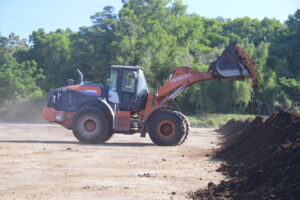 No regens
No regens
Hitachi’s new loaders use selective catalytic reduction (SCR) and a diesel oxidation catalyst (DOC) to reduce emissions. Many other brands of loaders and equipment use diesel particulate filters (DPF) to reduce emissions but these systems also require periodic regeneration—meaning a super-hot blast of fuel is blown through the DPF and out the exhaust system to burn off soot.
The possibility of DPF-based regens causing a fire when a machine is near combustible material is minimal, but not zero. With hundreds of acres of organic material and airborne dust swirling around Black Gold’s site, fire prevention is an important aspect of the operation.
“The Tier 4 Final KCM 80Z7 and Hitachi ZW220s meet the emissions standards without the need for a DPF,” says Steve Tuton, salesman for Great Southern Equipment. “They have DEF fluid and a DOC only, thus no regens. It’s a serious benefit to buying Hitachi, and thankfully, a problem Black Gold does not have to deal with.”
Grooming operators
Mike VanDerTulip, the company’s general manager, is strict with his service protocols. Oil changes and other routine maintenance items are handled at 250 hours. In addition to equipment management, VanDerTulip has operational responsibility for the bagging operations and recently supervised the installation of the company’s first robotic bag stacking arm. Of the nearly 25 employees at the company, six are wheel loader operators, and VanDerTulip has a good way to make sure the operators he does put on the machines will take care of them.
“Our operators are chosen from employees who work in the bagging operations,” VanDerTulip says. “Those are the entry level jobs. If they work hard and show interest, we will move them into a loader operator job when one becomes available. It’s considered one of the best jobs here. We teach them how to run the loaders by having them push dirt and compost on flat ground, then gradually move them to stockpiles. Once they have the skills, we let them load trucks and the hoppers at the bagging plant.”
Good work
The process of turning farm waste into a useful product is good in more ways than one. Lange says his father, who bought Black Gold Compost with a partner in 1985, worked in the agriculture feed industry and had long been aware of the problem dairy farms experience getting rid of their animal waste.
At the time, industrial scale composting was a relatively new industry. But over the years the industry has grown as more people recognize its benefits. It is good for the farmers and good for the environment. It’s also good for consumers and their gardens and landscapes, helping homeowners improve poor soil, grow better vegetables and beautify their landscapes.
“The compost industry today is getting much better at the production and quality of compost,” Lange says. “And all that material is kept out of the landfills.”
Recipe for success
Since composting takes place outdoors, weather is always a challenge. And trucking out as many as 26,000 bags of compost a day requires great logistics
The key, Lange says, is to have good people, good processes and a good product. “Put them all together and it will keep you busy.”
And since loaders are the key to the operation, having good machines and maintenance is also critical for uptime. “We keep our loaders until they won’t run anymore, which can be 30,000 or even 40,000 hours,” says Futch. “But we keep track of everything. Every bucket that loader moves we track to make sure everything is running efficiently.”

